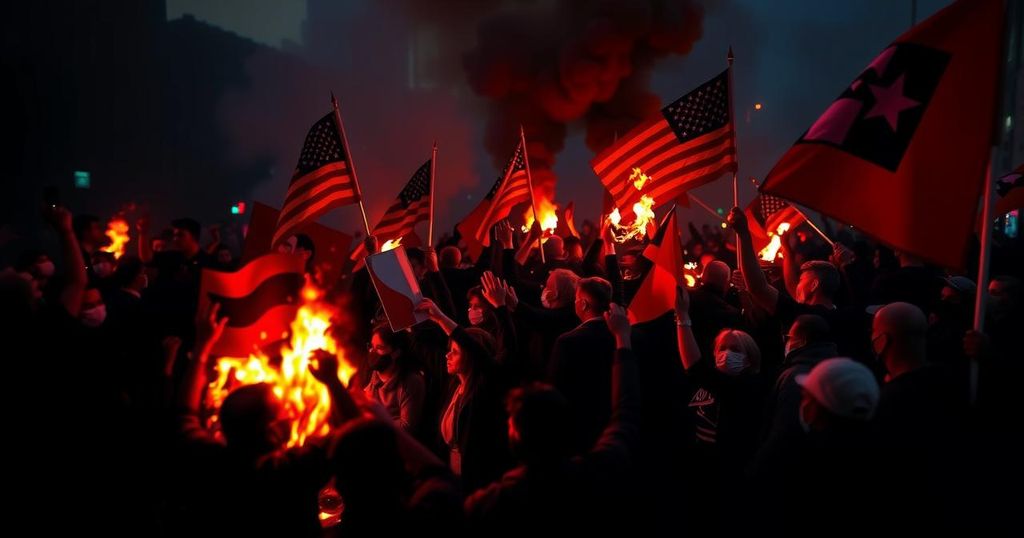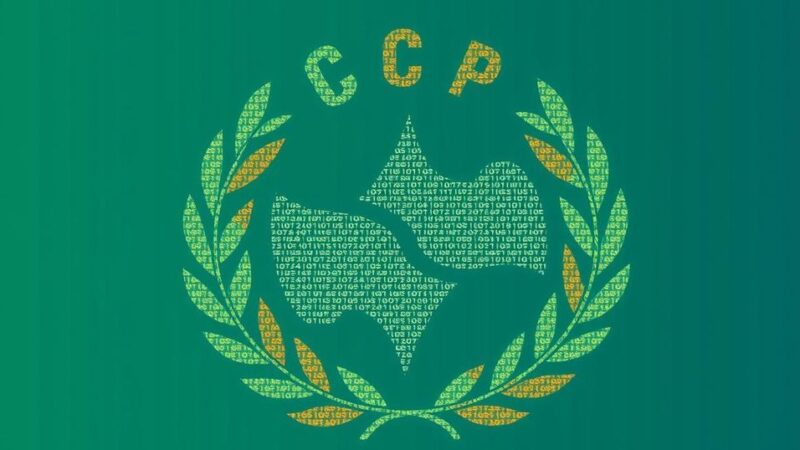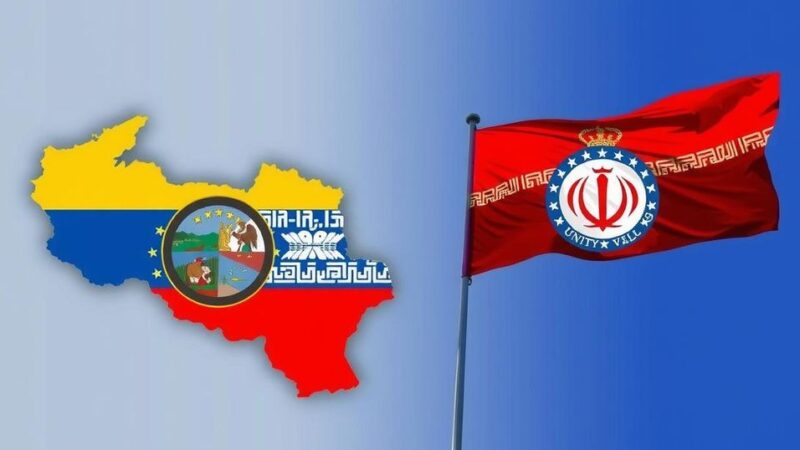Intelligence officials have warned of potential attempts by Russia and Iran to incite violent protests in the U.S. following the upcoming election. The memo details foreign influences encouraging discord and undermining the electoral process. Concerns are heightened due to recent historical events that demonstrate how election misinformation can lead to violence, necessitating increased protective measures for election workers and a call for civic resilience against disinformation.
Senior intelligence officials have issued a warning that Russia and Iran may incite violent protests in the United States following the upcoming election. This assessment comes from a declassified memo by the Office of the Director of National Intelligence. In light of two recent instances of foreign intelligence activity aimed at creating discord, officials expressed concerns that both nations could either orchestrate protests or incite participation in those organized by domestic groups, ultimately aiming to foster division, cast doubt on the electoral process, and complicate the transition of presidential power. A specific example highlighted in the memo involves Russian military intelligence attempting to recruit an American citizen for protest organization, suggesting the individual was unaware of their intermediary’s true identity as a Russian agent. Additionally, the Iranian government has been accused of covertly supporting protests against U.S. support for Israel, with reported financial offers for travel to protest events. The threats of foreign interference in the election process and subsequent political violence appear more pronounced this year due to a greater understanding by adversaries of the complex vote-certification process in the U.S. The events of January 6, 2021, during which supporters of then-President Trump stormed the Capitol, have underscored how misleading information can instigate real-world violence. Intel officials are particularly concerned about political instability between Election Day and Inauguration Day, as adversaries could exploit misleading claims or minor irregularities to disrupt the certification process. As tensions continue to rise, election workers in certain jurisdictions have taken precautionary measures, including installing bulletproof glass and panic buttons. Fears of civil unrest contribute to an atmosphere of deepening polarization and distrust, a situation that adversaries like Russia and Iran are likely leveraging through disinformation campaigns. While Russian interests appear to favor former President Trump, Iranian actions have sought to hinder his campaign, particularly after significant escalations in U.S.-Iran relations under the previous administration. There exists concern regarding the potential for groups aiming to influence the election to employ threats of violence at polling places as a tactic of voter disenfranchisement, similar to operations observed in the previous election cycle. To combat these threats, organizations advocating for voting rights are launching initiatives to enhance public awareness about disinformation and encourage resilient civic engagement in the electoral process. Officials from Russia, China, and Iran have refuted accusations of interference with U.S. elections, asserting that these claims stem from unfounded speculation.
The subject of foreign interference in U.S. elections, particularly around volatile periods such as post-election, is a significant concern for national security. Intelligence assessments have raised alarms about how adversaries like Russia and Iran might exploit divisions within American society to incite violence and undermine democratic processes. The memo released by the Office of the Director of National Intelligence reveals foreign powers’ capability and intent to meddle in the U.S. electoral system, increasing vigilance against the risks associated with political unrest driven by disinformation and propaganda.
The potential for Russia and Iran to incite post-election violence in the United States poses serious national security implications, as outlined by senior intelligence officials. Their strategies may involve either direct involvement in organizing protests or manipulation of domestic disdain to sow discord. Notably, as historical precedents demonstrate, the interplay between misinformation and real-world action can endanger the integrity of the democratic process during key transitional periods. As political violence fears lead to heightened government and grassroots initiatives aimed at protecting electoral integrity, leaders and citizens alike must remain vigilant and unified against the threats posed by foreign adversaries seeking to exploit America’s divisions.
Original Source: apnews.com






